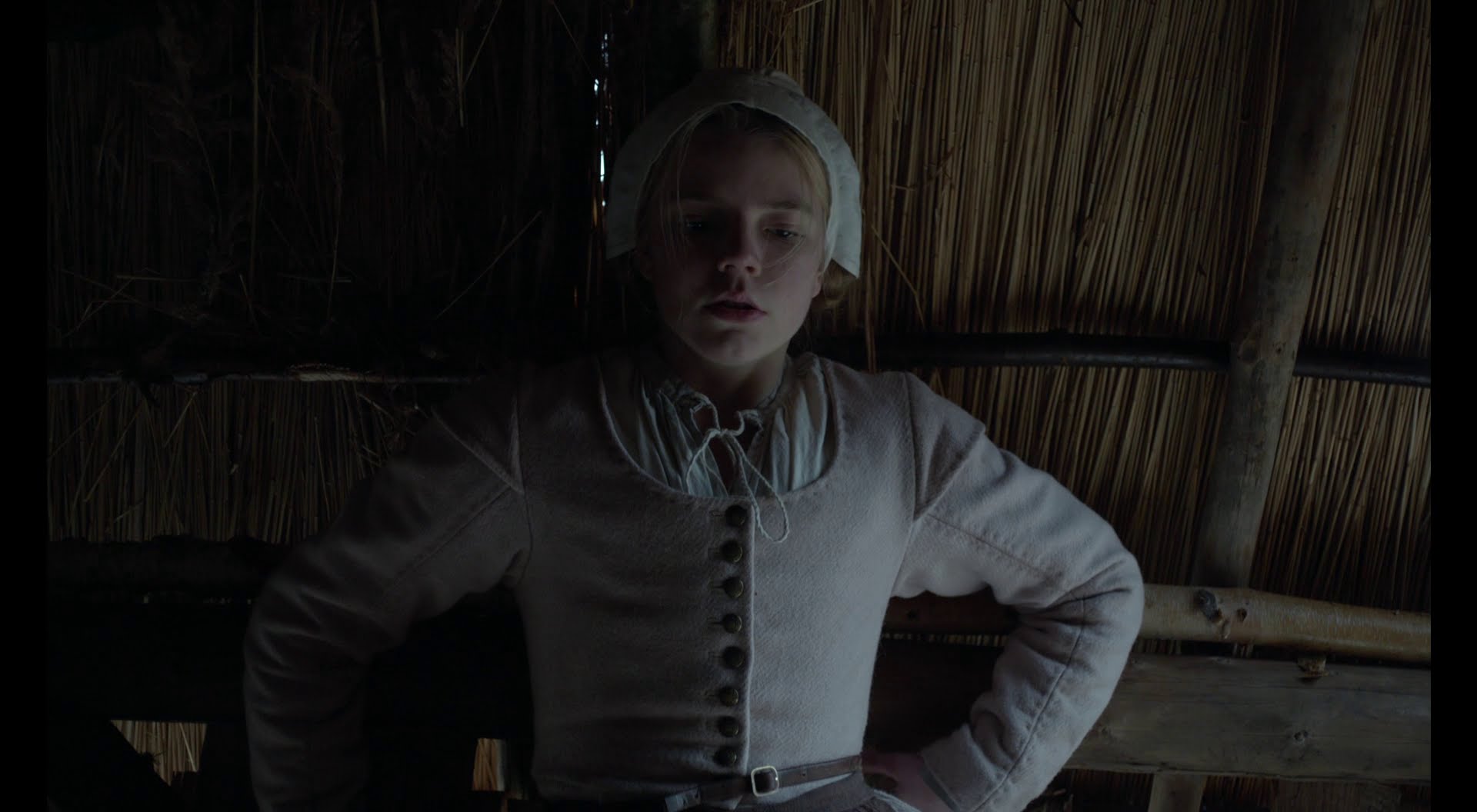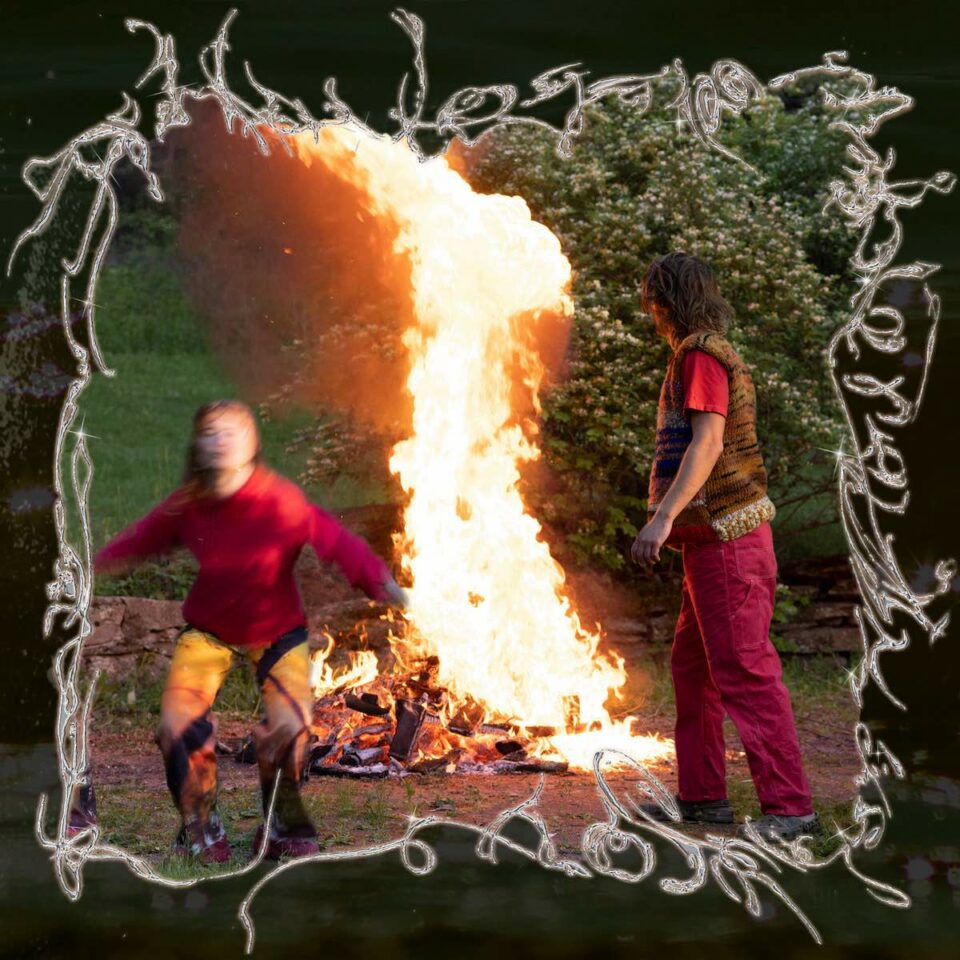There is very little in The Witch that we haven’t seen before, but that doesn’t make Robert Eggers’ debut feature unoriginal. This is a horror movie for which “horror” never seems quite the right descriptor, despite the fact that no one really has anything better.
So, what is this movie if it’s not quite a horror movie? Well, for one, it’s honest. It’s called The Witch and we see the witch and we fear the witch’s presence. This is not a movie that seeks to pull the rug out from under us, despite the fact that it gladly pulls the baby out from in front of us within the film’s first ten minutes—and then runs into the woods with it, pulverizes it, drapes itself with its blood, and luxuriates in the process. However, after this relatively uncomplicated encounter (she is no hallucination, and we have no doubt that she is real), we very quickly settle into an extremely naturalistic domestic drama that sounds like the most ambitious sitcom recipe that ever was: two hard-headed Puritans, four rebellious kids, and a talking goat trying to make things work on a farm where life never seems to go their way. (And you won’t believe what happens next!)
There may not be a lot of laughs here, but there is a lot of play. After the witch has made off with the couple’s youngest son, then under the watch of the family’s eldest daughter (witch-hunt alert!), this frontier family must find a way to survive the coming winter. That alone is a terrifying prospect in such an unyielding landscape (cf. Boston Commons). The forest looms forever in the background, holding unknown profits and unknown perils—along with a witch whose threat is very forcefully repressed. As is everything else. (Quiet is okay here, but silence is best.)
The naturalistic setting and quiet survival story bring to mind Virgin Spring, especially in the film’s ability to transform literally every person and every thing into a monstrous form. Like that film, The Witch also uses beauty as a weapon in order to spring surprises on an audience that after a while has forgotten to dwell upon the things that lie outside of the frame.
Which brings us to the horror. After our family meltdown is complete—after winter keeps approaching and crops keep wilting and children keep dying and the remaining children keep insisting that they are not the ones bewitching us—we are left with a family at odds with itself, at odds with nature, and very clearly doomed. The witch is, in a way, superfluous to their downfall. She is gratuitous. But gratuitous destruction is the hallmark of horror, and here it is delivered with a true killer’s instinct. Two cuts, maybe three, and we are dead.
Gratuitous destruction is the hallmark of horror, and here it is delivered with a true killer’s instinct.
The horror component, when it arrives, is hard to find fault with. Eggers’s scenes—especially the HOLY SHIT scenes that a movie called The Witch is contractually obligated to deliver—are as visually arresting as anything since The Shining. It’s not an inapt comparison. And neither is Hitchcock. It’s been a long time since we’ve seen anything as upsetting as the elevator of blood, the lady in the bathtub, or the twins. And although the idea of the “Hitchcockian” is thrown around a lot, not a lot of filmmakers are wiling to abstain from putting the horror in the foreground. The Witch earns a place in that tradition by shuttling between innovative visuals and a canny use of restraint. The biggest punch lands after we think we’ve been knocked out, and the punchline nods at the idea that all work and no play make Jack about as dull as his axe blade is sharp. This is a movie that refuses to be what we expect, even when referencing the films that we already love.
The Witch is a deeply novel film, despite its reliance on bleakness, forests, axes, vanishings, twins, and witches. And for witches, it offers a new beginning. Black Philip—the ram, the devil, the presumed source of the nightmare here—is something both laughably familiar and terrifyingly strange. (My wife has asked that I stop referring to Black Philip while soothing our newborn child, and I have to say that I find that request very reasonable indeed.) That uncanny experience is repeated again and again in this film, and leaving aside the question of whether it’s scary or tense, fraught or frightening, suffice it to say that The Witch is original and that it is good. Go see it. FL









